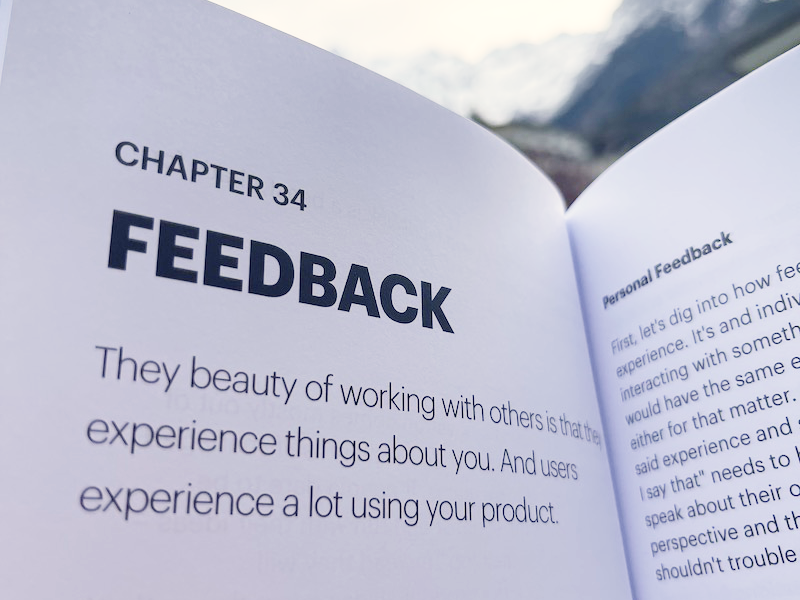
They beauty of working with others is that they experience things about you. And users experience a lot using your product.
What's harder in life than hearing something you have been working on or been a part of is not working to another persons expectations or that someone you’ve worked with, delivered a product to or collaborated with has had a really bad experience? Feedback can and is a real mental exercise unlike anything else. If you let it.
There are tons of angles in to feedback and I will try to generalise about a combination of common denominators for feedback from users of your products, “bosses” and colleagues. I’m not going to touch your laundry room conflicts though. Even though someone should.
Personal Feedback
First, let's dig into how feedback arises. It arises from an experience. It's and individual experience that someone has interacting with something. It doesn’t mean that “everyone” would have the same experience, or that they wouldn’t either for that matter.
But any attempt from a person having said experience and says “I think I speak for everyone when I say that" needs to be closed down quick.
People can only speak about their own experience from their own perspective and those who tries to be spoke persons shouldn't trouble theirselves.
An experience comes from a way that a person perceives their surroundings, their own past experiences, their ability to feel compassion and empathy with others as well as their mindset.
There are probably tons of more stuff that can be said here, but the point is that you, who would be receiving the feedback, should see the perspective they are offering.
Read more in "The CTO Playbook" available on Amazon/Kindle.

 Switzerland.
Switzerland.